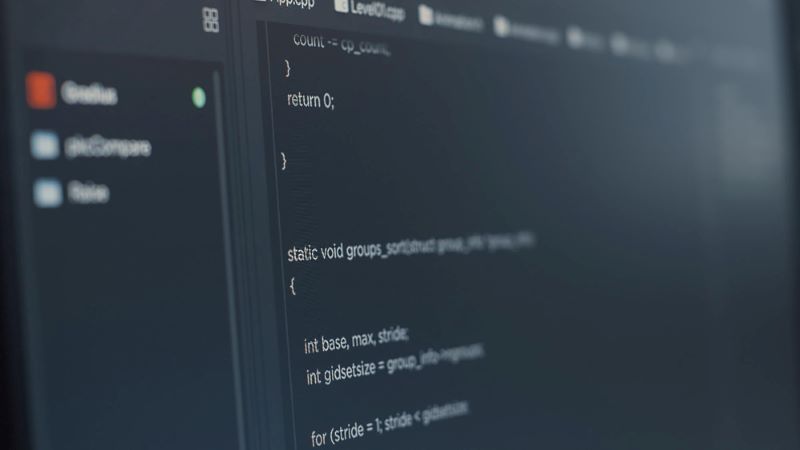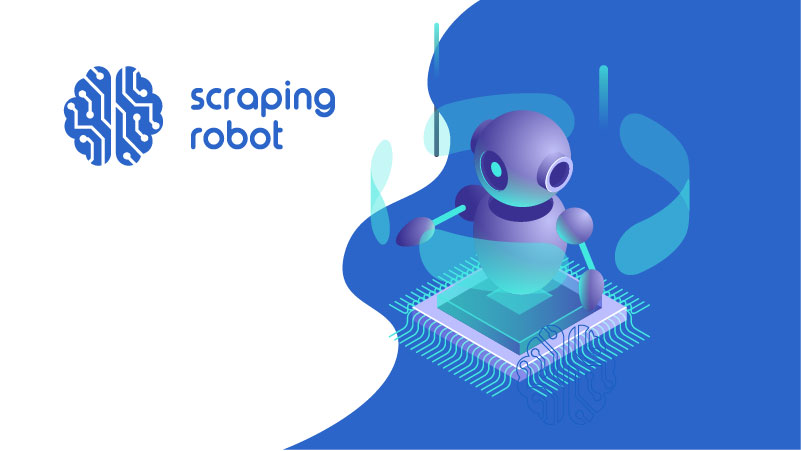Web Scraping VS Web Crawling (Why The Difference Matters)
In the 4th grade, I was a proud member of my elementary school orchestra. I plucked violin strings like a bluegrass band member. The way my bow slid across my instrument was smoother than butter. Needless to say, I was a confident little musical tyrant. But one fateful Wednesday practice, I made a fatal flaw. I confused Sarah O’s viola with my violin. Sarah O turned up her nose at the very idea of her precious viola being on the same level as a common violin. ‘Yes, the two instruments were similar,’ she said. ‘but different in a very important way.’
Table of Contents
I hung my head in shame, apologized, and never played my violin with quite as much gusto. Sure, the violin and viola were different in size, sound, and had a few varying notes, but it wasn’t the differences that mattered to Sarah O. It was the fact that they were unique in the first place.
How do the differences between sting instruments relate to our topic today? Just like my elementary school blunder, it’s the unique qualities of web scraping vs web crawling that matter. Yes, the two are similar, but our concerns are the individual key features of scraping vs crawling. Don’t worry; I’m not going to force you to learn a complicated concerto.
What Is Web Scraping?

You can’t play in an accompaniment without first learning notes and scales. We want to familiarize ourselves with the basic definitions of our two main points of interest before attempting anything more. First up, what is a web scraper? To web scraping novices, the very term might sound a bit odd, but the concept is beneficial.
In basic terms, web scraping happens by a bot extracting data from web pages. The bot looks for the most useful data and ranks that data for you. Think of web scraper as a musician, learning only their favorite classical compositions. Each note is information applicable to the topic or topics you’re plucking through. Web scraping, for the most part, is used to find structured data. ‘Structured data’ can include anything from stock information to company phone numbers. Keep that phrase in the back of your mind when mulling over the differences between web scraping vs web crawling.
I also want to introduce you to the word parsing. Once a web scraper collects all the data, it parses that data. What does parsing mean? Parsing is the act of breaking up data into smaller pieces so that it is readable and easier to understand. Once this data is broken up, a computer is able to interpret and transmit the information. Data is parsed through so that information is translated correctly. Online information is translated using HTML (hypertext markup language). HTML is the language that every web page uses to communicate with the other. If the internet was a country, then HTML would be the internet’s national language.
How to Use a Data Scraper

Since we have a grasp on the technology, we need to focus on another question: what is data scraping? From marketing companies to graduate students, data scraping is a process that can be applied to all sorts of businesses, job titles, and fields. Ask a scraper to compare the prices of your products against the products sold by your competitors. Use a web scraper to find and compile a list of every company phone number at your particular branch. History students can employ the help of a scraper to collect all the data on every military ship used in World War II. Many companies use scraping each and every day. This process saves time, energy, and effort on the part of team members and individuals.
A scraper gives you the ability to pull the content from a page and see it organized in an easy-to-read document. Data scraping can be scaled to fit your particular needs, meaning you can scrape more websites should your company require more information on a certain subject. Pretty nifty, huh? All that extracted data presented to you with minimal effort on your part. Streamlining the research process and minimizing the arduous task of gathering data is a huge benefit of utilizing a web scraper. If your sole intent and purpose are to extract data from a particular website, then a data scraper is the perfect online tool for you. When faced with a choice between web scraping vs web crawling, think about the kind of information you need to extract from the internet.
What Is Web Crawling?

Okay, one definition down. Well done, my information excavating friends. Next up, let’s define web crawling. Web crawling is an essential part of how search engines function. Each time you google a word or phrase, Google finds URL links from a list of collected seed URLs. A web crawler follows different links, jumping to and from piles of information. The bot scrapes the data from the URLs. An important point to note, web crawling requires web scraping, but scraping does not require crawling. I know, I know…violin vs. viola.
If web scraping is the playing of singular notes from particular songs, then web crawling is the act of collecting melodies from every song, ever. Think about the way Google searches every piece of information the internet has to offer, every time you google a topic. This means that when you google the word “coffee,” Google is searching every source available with the word coffee attached. Aren’t you glad you aren’t a human web crawler? What a life that would be, providing endless amounts of information like it’s your actual job. Don’t fret; the bot isn’t bitter about the number of URLs relating to coffee you’ve requested. Such is the case with web scraping vs. web crawling.
How to Use a Data Crawler

Most musicians don’t know every song ever. If they did, that would be ridiculously impressive. In order to establish who or what needs the help of a scraper, we can return to the grand scale of what data crawling means. When web browsers like Bing and Google use the technology for their own use, then you can imagine web crawling as an individual isn’t super practical. For example, Google has so much information housed in their databases that they even have online resources for keywords. Keywords that lead you to other keywords, which lead you to more keywords. Keywords break down topics further and further until they are as specific to a topic as possible. Whew, that’s quite a journey we just went on, maybe a journey similar to the one a web crawler goes on each time the bot finds new URLs to search through. When discussing web scraping vs web crawling, it’s important to remember how a crawler is used by large companies.
The main targets for a web crawler might include libraries that need to collect massive amounts of information for an online database, a world-renowned art gallery looking to gather data about all their collected pieces of art, or large companies such as Apple. But of course, that isn’t to say you as a singular person or a small company are forbidden from using data crawling from assisting you with searching through URLS links. It’s simply important to know the distinction before choosing the technology best suited to your searches.
Web Scraping vs Web Crawling

To reiterate a few points, web scraping extracts established, ‘structured data.’ You must have known we’d circle back to that all-important point. And don’t forget, web scraping can be an isolated event, while web crawling combines the two. Moving even deeper into the topic, scraping vs crawling is the difference between collection and computation. Collecting is the act of gathering. Computation is the act of calculation. Collection is useful when all one requires is data, but computation digs further into the amount of information available. Data collected by a scraper is a comprehensive highlight reel while data from a crawler is more of a mathematical index.
The last point to note is the way crawling is concerned with minimizing the amount of duplicated data. While a scraper isn’t necessarily concerned with the data itself, a crawler is out to eliminate the problem of delivering the same information more than once. This high-level aspect of web crawling is one of the reasons why the process is performed on larger levels. After all, the more info a crawler has to look through, the greater the chance for duplicate information there is. Keep these few ideas about web scraping vs web crawling in the back of your mind before diving into your next research project.
The Best Web Scraper Available Online

With the definitions of scraping and crawling under your belt, you might be wondering where you can find a bot used for web scraping. They aren’t as scarce as you might think; in fact, the technology isn’t new and is ready whenever you are. Scraping Robot is here to help collect, gather, and scrap the internet for whatever information you might need.
Here at Scraping Robot, we price one simple scrape at just $0.0018. We don’t require any monthly subscriptions to use our products, and you’ll receive 5000 free scrapes upon signup. Plus, our customer service team is available 24/7 should you have questions about any of our products. Choose from our pre-made modules, like a Google scraper, or talk our team directly to set up a custom scraping project. The possibilities for use are endless and we’re here to make all the available information on the internet applicable to you or your company.
The Final Note
What a stage we’ve stepped onto. The amount of information we’ve just ‘parsed’ through is astounding, our own mini guide to the key differences of two crucial parts of online information gathering. Before you choose the right technology for the information you need, make sure to keep all you learned in mind. Do your own research, and of course, reach out to the customer service team at Scraping Robot with any pressing questions.
Although my career as a classically trained violinist never left the halls of my elementary school, the lessons I learned stuck with me. Our differences make us stronger and the differences between scraping and crawling are key to finding the right information just when you need it. I haven’t talked to Sarah O since I was nine years old, but I bet she’d be proud I not only grew from our interaction but that I’m using that lesson to teach others. Web scraping vs web crawling? Sweet music to our collective ears.
The information contained within this article, including information posted by official staff, guest-submitted material, message board postings, or other third-party material is presented solely for the purposes of education and furtherance of the knowledge of the reader. All trademarks used in this publication are hereby acknowledged as the property of their respective owners.
